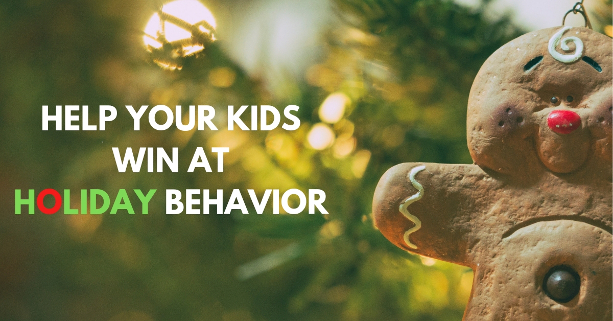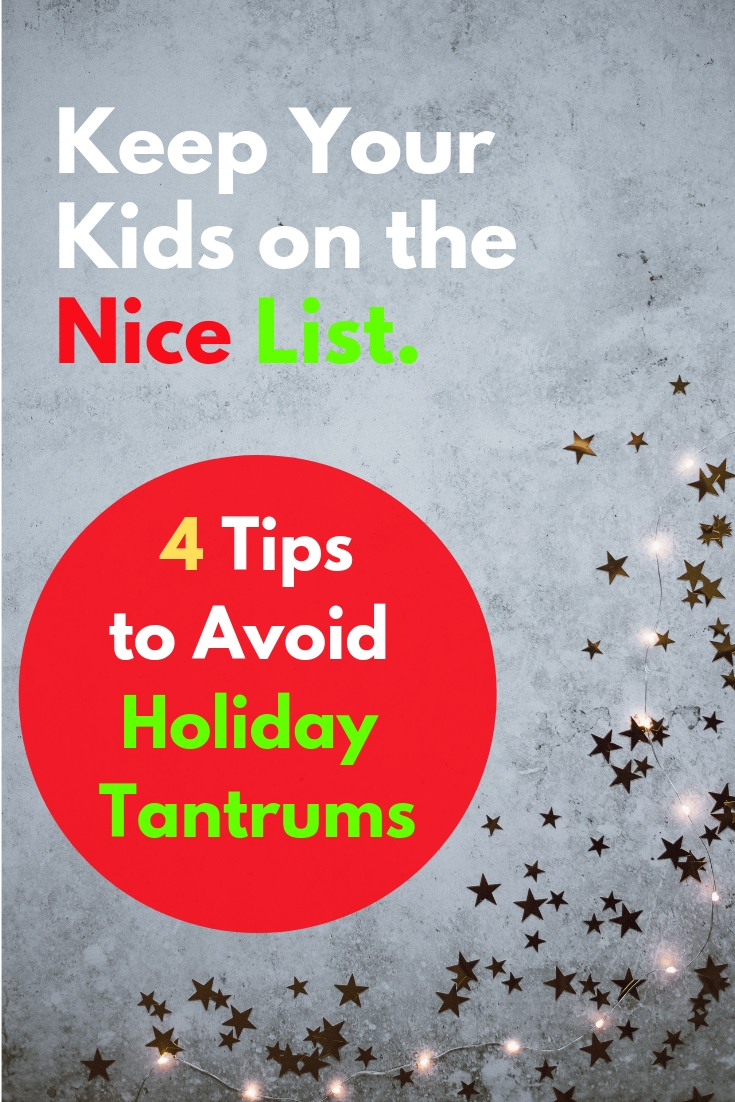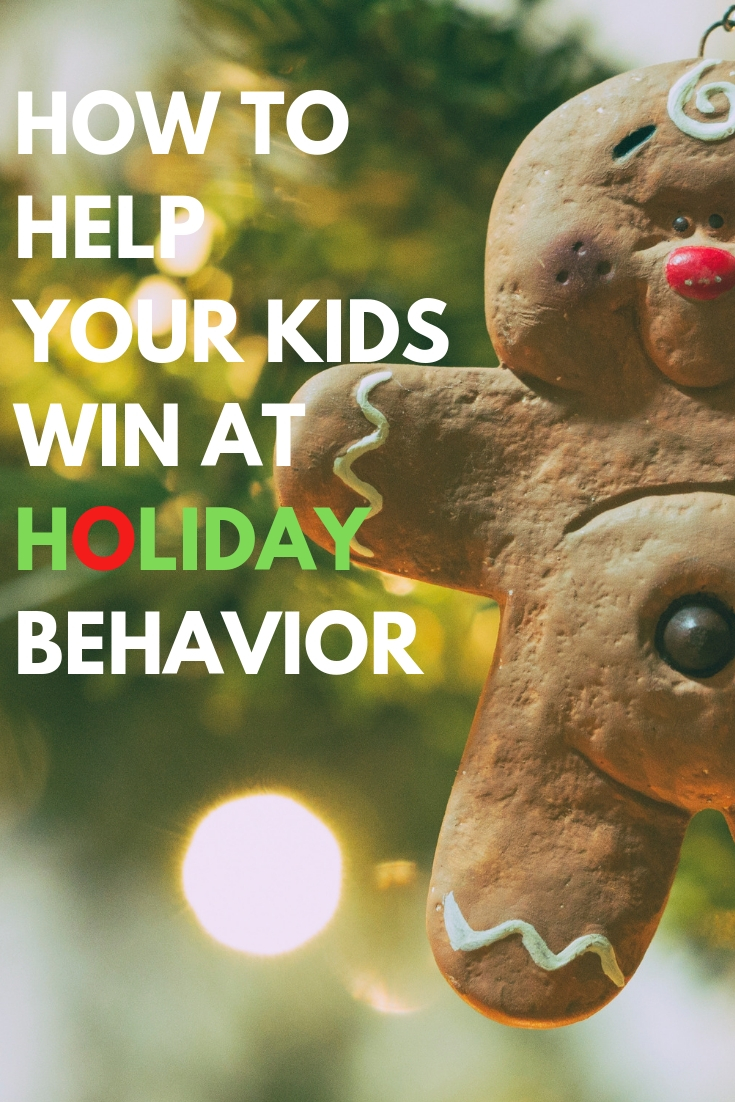Help Your Kids Win at Holiday Behavior
Prevent overtired, cranky tantrums and help your kids enjoy the holiday season
by Steve Silvestro, MD @zendocsteve
You can also listen to this article as a podcast on your favorite podcast app or click on the player below:
*
I have to admit, it’s been really hard for me to write this article.
I’ve been sitting on this idea for a few weeks now, but haven’t been able to get myself to focus and write. It’s not that the topic is emotionally difficult or anything—just that my head has been elsewhere, off in holiday season mode.
This time of year, it can be hard to keep a steady state of mind and do things “normally.” Sure, there’s the potential of overwhelm—a long list of things that have to get done, presents to buy, activities to schedule. But there’s also the happy distraction of joy—festivities with friends, getting together with family, thinking about how to brighten someone’s day.
It’s not always easy to think straight during the holiday season. And if that’s true for us adults, imagine what it must be like for our kids!
This time of year is often hyped up to kids as “the most wonderful time of year,” a time that they simply must enjoy. After all, it’s packed with parties, pumpkin pie, candy canes, sleepovers with cousins—and, depending on your family’s traditions, the promise of presents.
Amazing, right?
THE REALITY OF THE HOLIDAYS FOR KIDS
But let’s think about the reality of what this season is like for our kids…
Those holiday parties we enjoy might be at a house your children have rarely been to before, crowded with grownups and kids they may or may not know too well. And adult supervision at a holiday party? It’s more likeLord of the Fliesin the basement while the grownups laugh and eat upstairs—making it easy for scuffles or uneasy feelings to develop.
All the holiday cookies and pies that adults hope won’t add too much to their waistlines translate instead for kids into more frequent chances of experiencing both sugar highs and lows.
And forget about normal bedtime. Aside from parties to attend, there are lights to see, holiday specials to watch, and cookies to swap—all of which increase the odds of more late nights than your child might be used to over the span of just a few weeks.
When we actually think about the details, this most wonderful time of year is in reality a minefield for our children when it comes to behavior and expectations. One wrong step and it’s easy to see how an overtired, hungry kid in a new environment just might explode into a tantrum.
And yet, of course, hanging over their heads is that omnipresent threat of a jolly old elf putting them on a naughty list, minefield be damned.
ARE WE SETTING OUR KIDS UP TO FAIL?
This holiday season, are we unwittingly setting our kids up to fail?
Longtime followers of mine know that I am a huge proponent of teaching kids resilience and grit. But I’ve never been a fan of purposefully stacking the odds against a child.
And while the most ideal approach to ensuring great behavior would be to make teaching your child calming techniques, self-awareness, emotional intelligence, and more part of your day-to-day life, I’m going to assume that you’re reading this article because the holiday season is upon us and you need your family to make it through in good spirits right now.
So, with that in mind, here are some things that you can do during the holiday season to help your kids stay even-keeled and more likely to stay on that nice list:
CHECK YOUR EXPECTATIONS
The first time my family went to a cut-your-own Christmas tree farm, we were all excited—we had high hopes for how much fun it was going to be. We dressed up warmly, brought a thermos of hot cocoa to share, and had the “nice camera” on hand.
It was going to be a very Pottery Barn catalog experience.
In reality? It was freezing. The kids demolished their hot cocoa in minutes and had to find a place to pee in the middle of the tree farm. And once we’d picked out a tree, the time it took to cut it down and wait in line to have it shaken out and purchased was a lot longer and resulted in much more whining than any of us expected.
That’s not to say that it wasn’t fun—after all, we’ve chosen to do it again since that first time. But was it the Pottery Barn catalog experience we’d all imagined? Well, the hungry-bored-have-to-pee fussing put a damper on that, and let’s just say that the few pictures we took aren’t hanging on a wall anywhere in our house.
Expectations don’t always equal reality when kids are involved. That’s totally okay, but it’s best to understand that going in.
PAY ATTENTION TO YOUR KIDS
Like I mentioned before, there’s a lot going on this time of year. And while many of the things you might be planning or working on are ultimately for your family’s benefit, it’s easy to lose sight of being present in the moment with your kids.
The result is that it’s easy for us to unwittingly brush them off or to respond in a way that isn’t really what you’d prefer.
For example—everyone’s had the experience of being at a gathering where someone’s child keeps coming back to hang out with the grownups, perhaps constantly looking for help or saying they’re bored. Maybe it’s been your kid (I know it’s been mine!).
It can be frustrating when this happens, and so it becomes really easy to say something like: “You’re fine. Go back down and play.”
But acknowledging what’s going on—whether your child is frustrated by the other kids or overtired or nervous about the unfamiliar environment—taking the few moments to determine the cause and acknowledge your child’s feelings will be far more likely to defuse the situation than telling them that they’re okay/hungry/tired or yelling at them.
My kids often hear me say the phrase “Do it right, or do it twice.” The same goes for us parents when our kids are looking for our attention. You don’t necessarily need to fix your child’s problems for them. But taking the few moments to acknowledge them the first time will likely make things easier for you both.
MAKE SURE THEY ARE WELL FED—WITH REAL FOOD
A few years back, my wife and I went to a family-friendly improv show. Sitting in front of us were two rows of kids, maybe 8-10 years old each. Before the show started, the adults in charge of the kids gave each child a movie theater-sized box of candy and a soda.
Can you guess what happened?
Twenty minutes into the show, the kids were squirming, wiggling, and talking—and their accompanying adults were scolding them, telling them all to sit still and be quiet.
Those adults thought that by doling out pounds of candy and soda, they were giving the kids a fun experience. But by not recognizing and accepting what the sugar and caffeine would likely do to the kids’ behavior, they were setting those kids up to fail.
The holiday season is one time of year when we give ourselves and our kids a little bit more freedom to eat sweets and foods that we might not indulge in as much the rest of the year. And that’s not necessarily a bad thing. I wouldn’t dare say that you shouldn’t allow your kids to enjoy holiday treats—I look forward to some apple crisp and Christmas cookies and want my kids to experience them, too.
Instead, focus on the rest of your child’s meals and snacks this season. Ensure that your kids are getting enough protein* and healthy fat to stay satisfied, and plenty of plant-based foods* to keep their bodies working as best they can. Feed your kids before a big party so they’re less likely to crush 12 cookies because they’re starving. Keeping them hydrated can help with this, too.
Giving your kids a healthy diet at baseline is important all year long, but focusing on it this time of year can help your children avoid the sugar highs and lows that can bring on poor behavior.
GET CHILDREN ‘NESTLED ALL SNUG IN THEIR BEDS’
So we’ve established that there are plenty of opportunities for kids to be up late and become overtired during the holiday season. And we all know that overtired kids aren’t always the most pleasant people to be around (though let’s be honest—the same is true for adults!).
Making matters worse is the fact that there’s debate about whether sleeping in later on a weekend can actually help us catch up on lost sleep. Plus, you can’t really “make” a child sleep in. What you can do, however, and what we know does have an impact on erasing a sleep deficit, is to aim to get them to bed a little earlier than usual.
Luckily, holiday parties and excursions are rarely spur-of-the-moment events—which means you can adjust your kids’ sleep schedule in advance to help ensure they’re well-rested going in. If you know an event is coming up, get your kids to bed just 15-20 minutes earlier than usual each of the few nights before the date. The result may be that your children have the reserves to better handle a special night or two when the routine is thrown off.
THE HOLIDAY UN-SCHEDULE
On a related note, be sure to have scheduled downtime—something from which both kids and parents could benefit.
There’s a lot going on during the holiday season. It’s easy to look at a calendar or social media notifications about fun events and want to do them all. Expectations for what this time of year should be about can ramp up feelings of FOMO in all of us.
Of course, if you and your children can handle all the plans, then dive right in. But if you or your kids find that you’re feeling overtired or stressed because of all the “fun” you’re supposed to be having, it might be worth it to take a breather and reevaluate.
Schedule some low-key family time at home. Try to have a good stretch during which you can stick to your kids’ routines to help them recharge. And be sure to check in and take care of yourself, too, so that you can better enjoy everything with your family.
The holiday season offers so many opportunities for fun and bonding with your family and friends. It’s a time that many children look forward to, and rightly so.
Of course, we’d all love not to miss out on many of the festivities that come up this time of year, and for our kids to be on their best behavior as often as possible—yet it can feel as if we can’t meet both of these goals at the same time.
But by planning ahead and using the tips above to avoid putting your kids into “impossible situations,” recognizing when you have, and adjusting expectations accordingly, you can increase everyone’s chances of staying on the nice list—yourself included.
Dr. Steve Silvestro is a pediatrician, dad, and host of The Child Repair Guide podcast, which brings insights from the world’s best experts on parenting and kids’ health directly to parents. He may or may not be on the nice list this year…
Share These Images on Pinterest
Music
- Akashic Records – Motivation
- Adam Hinden & cinnafinn — sea you soon
- Killercats – Kaibu












